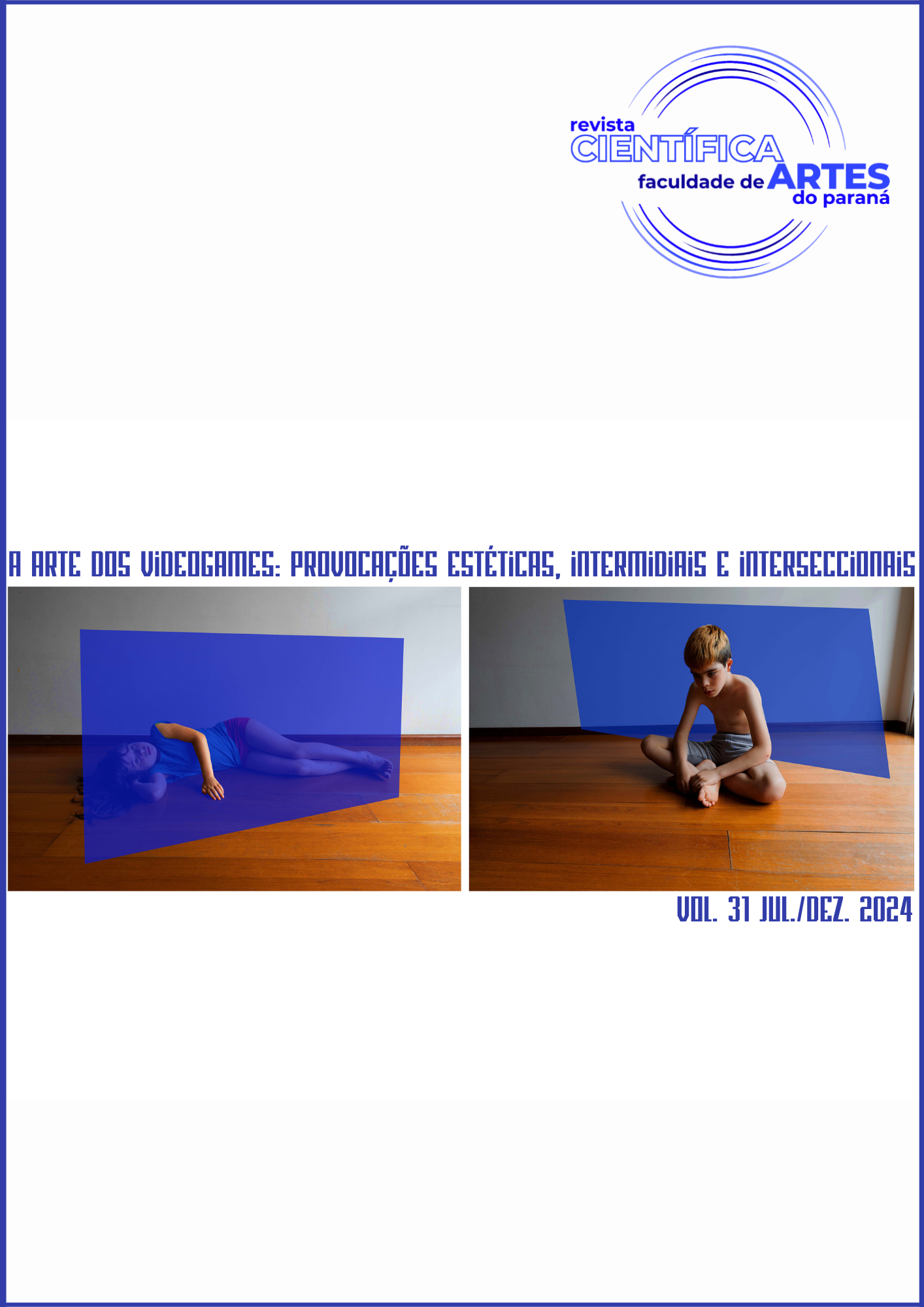O paradoxo do jogador-espectador
DOI:
https://doi.org/10.33871/19805071.2024.31.2.9536Keywords:
Aesthetics, Politics, Acitvity, Passivity, Games StudiesAbstract
Videogames are increasingly present in our culture, having become central elements in how we engage with reality. Despite this, some still argue that videogames are merely an escapist form of entertainment, without the need to address political issues or situations of our time. On the other hand, there are those who see them as a way to educate new generations, stimulate empathy for others, and give voice and visibility to minority groups. Based on the dilemma of art as education, this article aims to analyze how videogames can be political. Central to this discussion is "The Emancipated Spectator" by Jacques Rancière, which critiques the traditionally passive role attributed to spectators through theater theory. Unlike spectators, players can interact with the work, thus demonstrating a certain type of agency. The article argues that, although videogames offer interactive experiences, they often limit the true agency of the player, thus restricting the potential for political engagement. We propose, therefore, the figure of the player-spectator paradox as a way to explore the intersection between videogames, aesthetics, and politics. This paradox places players in a unique position, where they are active participants but remain confined by the game's design. By analyzing these dynamics, the article seeks to better understand how videogames can be both an artistic and political medium, challenging traditional notions of passivity and activity in the consumption of art.
Downloads
References
Referências bibliográficas
ABBAGNANO, Nichola. Dicionário de Filosofia. Tradução: Alfredo Bosi, 2ª edição. São Paulo: Martins Fontes. 1998.
ARENDT, Hannah. A condição humana. Rio de Janeiro: Forense Universitária, 2009.
ARISTÓTELES. A Política. Tradução de Roberto Leal Ferreira, 3ª edição. São Paulo: Martins Fontes, 2006.
CAILLOIS, Roger. Os jogos e os homens: as máscaras e as vertigens. Tradução: Tânia Ramos Fortuna. Petrópolis: Vozes, 2017.
FRAGOSO, Suely; AMARO, Mariana. Introdução aos estudos de jogos. Salvador: EDUFBA, 2018.
PLATÃO. A República. Tradução: Maria Helena da Rocha Pereira. 9. ed. Lisboa: Fundação Calouste Gulbbenkian, 2001.
RANCIÈRE, Jacques. O Espectador Emancipado. Tradução: Ivone C. Benedetti. São Paulo: Editora WMF Martins Fontes, 2012.
SICART, Miguel. Ethics computer games. Massachussets: The MIT Press, 2011.
Referências ludográficas:
KBoston/2KAustralia, Bioshock. 2K Games. 2007.
Arkane Studios, Dishonored. Bethesda Softwork. 2012.
BrainDead Broccoli, Punhos de Repúdio. BrainDead Broccoli, QUByte Interactive. 2022.
Ubisoft, Far Cry. Série. Ubisoft. 2014, 2018 e 2023.
Downloads
Published
How to Cite
Issue
Section
License
The authors retain the copyright, when licensing their production in Revista Científica/FAP, which is licensed under a Creative Commons license. When submitting the article, and upon acceptance, the author assigns his copyright for publication in that journal.
Readers can download, print and use the articles published in the journal, as long as there is always an explicit mention of the author (s) and the Revista Científica/FAP, no changes to the original work are allowed. When submitting an article to Revista Científica/FAP and after its being accepted for publication, the authors allow, without remuneration, to pass the following rights to the Journal: the first edition rights and the authorization for the editorial team to transfer, according to their judgment, this article and its metadata to indexing and reference services.


